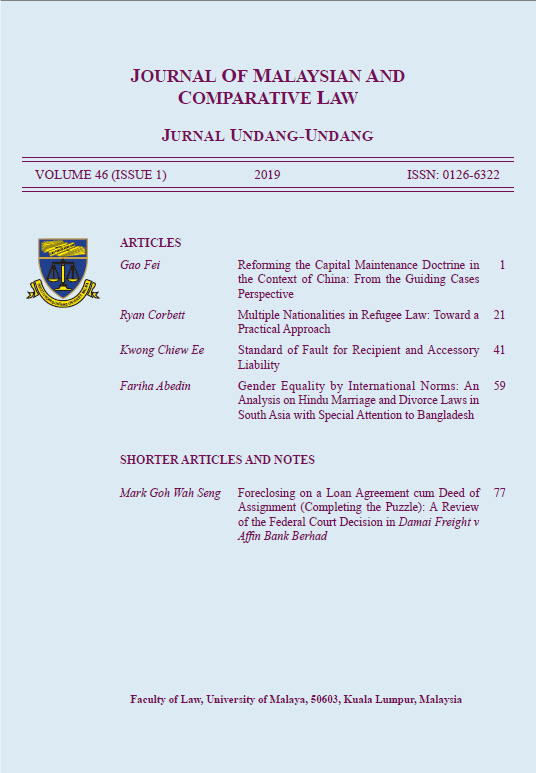Multiple Nationalities in Refugee Law
Toward a Practical Approach
Keywords:
Refugee, Migration, Citizenship, Nationality.Abstract
The 1951 Convention Relating to the Status of Refugees (Refugee Convention), a treaty intended to protect some of the most vulnerable individuals in the world, has resulted in the exclusion of persons from refugee status due to a provision detailing citizenship requirements. According to the Refugee Convention, individuals who hold multiple nationalities must seek the protection of their other state(s) of nationality, or demonstrate why they cannot, before being able to be granted refugee status in another state. This paper will explore this provision of the Refugee Convention and the reasoning behind it, as well as survey issues that have arisen from its application over the past several decades, in order to recommend a more uniform application of the provision with an eye to the object and purpose of the treaty. The state application of Article 1(A)(2) can have serious implications for refugees fleeing the violence in Syria, North Korea, and countless other countries. We must take seriously interpretations of treaty law that are logical in theory, but lead to violations of rights and incongruous decisions in practice. This paper proposes an alternative view of effective citizenship and recommends a particular application of the Refugee Convention and understanding of citizenship.



